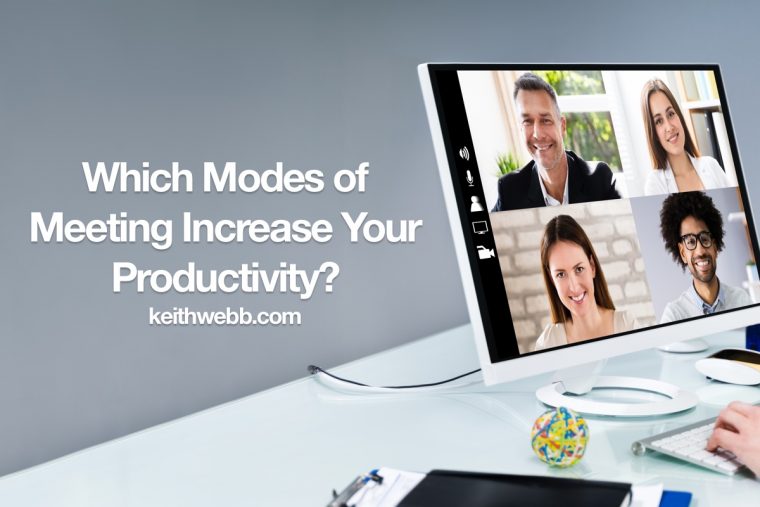We now have more choices than ever before for how we meet with people. We can meet in-person, by phone, or use video over Zoom or Skype. Too much of any one mode is detrimental. Leaders need to consider their ideal personal modes of meeting mix to remain productive.

Video conferencing is a fantastic tool for communicating. I regularly lead training workshops, hold meetings, and speak with clients all from my home.
But you can have too much of a good thing! Zoom fatigue is a real. It’s the burnout, worry, and stress associated with overuse of visual Internet meetings.






